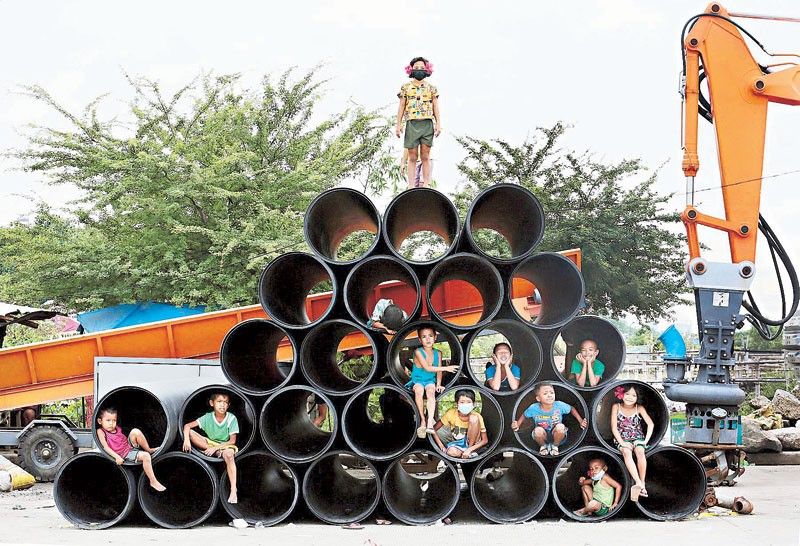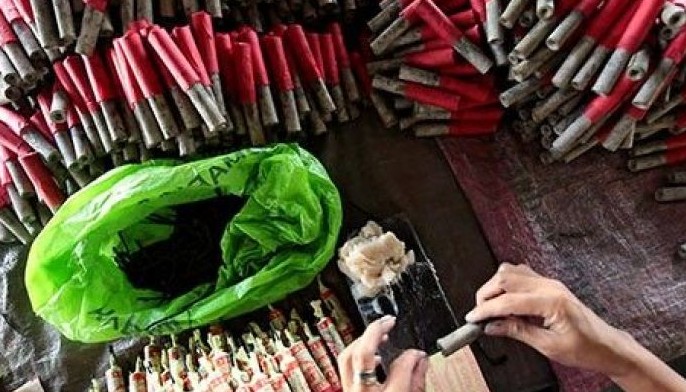NEDA, IATF recommend placing entire Philippines under MGCQ

MANILA, Philippines — The National Economic and Development Authority (NEDA) has recommended placing the entire Philippines under the most lenient quarantine status, citing the need to address hunger and income losses caused by prolonged lockdowns.
Acting NEDA Director-General Karl Chua said the quarantine restrictions that are in place since March last year have caused a total income loss of P1.04 trillion or P2.8 billion per day. This translates to an average annual income loss of P23,000 per worker, he added.
"However, we know that other sectors were not allowed to operate under the community quarantine and other people lost their jobs. That's why the impact on the income and livelihood of other workers is worse," Chua said during a meeting of the government's pandemic task force last Monday.
Chua cited the need to balance the need to contain the COVID-19 pandemic and efforts to revive the economy.
"We need to shift as soon as possible to MGCQ (modified general community quarantine) for the entire Philippines. We hope starting March 1, 2021 so we can address the high percentage of Filipinos who are experiencing hunger," the acting socioeconomic planning secretary said.
"We are not saying that we should reopen the economy without minding the number of COVID cases. We have to do both," he added.
Chua said there was no significant increase in the number of COVID-19 cases despite the reopening of the economy in October and the Christmas vacation. He said a recent survey also found 73% of Filipinos saying that the government has to balance the opening of the economy and jobs and controlling the spread of the virus.
"So given progress on the health side and no spike in COVID-19 cases from the reopening of the economy last October and the year-end holiday, our recommendation is number one, we further open the economy to MGCQ for the entire Philippines, especially NCR (National Capital Region)," Chua said.
"The main reason is we want to mitigate or reduce sickness, hunger, poverty, job and income loss that are arising from non-COVID cases," he added.
Chua said localized lockdowns that are limited to specific barangays and municipalities can be imposed to prevent the spread of the virus.
Majority of the provinces and cities in the Philippines are now under the most relaxed MGCQ, where about 75% of industries are allowed to operate. Only Metro Manila, Batangas, Abra, Apayao, Benguet, Baguio City, Ifugao, Kalinga, Mountain Province, Tacloban City, Davao City, Davao del Norte, Lanao del Sur and Iligan are under the stricter general community quarantine (GCQ), where about half of the industries can operate.
Presidential spokesman Harry Roque said President Rodrigo Duterte is still studying the NEDA's recommendation. He, however, agreed with Chua that the government should now help Filipinos who are experiencing hardships because of COVID-19-related restrictions.
Citing a study by NEDA, Roque said while the number of COVID-19 infections have reached more than 550,000, the number of Filipinos who are experiencing hunger has risen by 23.7 million. The number of poor people has increased by 4.5 million while that of jobless individuals has risen by more than two million, he added.
"Since more people are suffering because of non-COVID-related activities...it's about time that we save our countrymen from hunger and poverty," Roque said at a press briefing yesterday.
Roque said Filipinos have also been following health and safety protocols, citing an OCTA research which suggested that 93 percent of them are wearing face masks.
Other recommendations
The NEDA also proposed the expansion of public transport from 50% to 75% so more people can return to work. Chua said public transportation should be complemented with "active transport support" like designating bike lanes. He cited the need to expand the inter-province bus operations, noting that many Filipinos who went to the provinces during the lockdown could not report for work.
Chua also recommended the easing of age-based movement restrictions, which was deferred because of the emergence of a new and more infectious COVID-19 variant.
"At present, people aged 15 to 65 are the only ones who are allowed to go out. Our proposal is to gradually expand it to (people) aged five to 70. We can do it gradually, in increments of five years, also with appropriate safeguard," Chua said.
"With regard to safeguards, young people can go out with their parents only, or initially, they can go out to more open areas and it does not mean they will go to the malls. The young people can go out with safeguards, it will allow also their parents to work and get a job," he added.
The NEDA also called for the conduct of pilot face-to-face classes in low risk areas, saying the government was able to control the spread of the new COVID-19 variant. The pilot in-person classes were supposed to start last month but they were canceled as a precautionary measure against the new virus strain.
Roque said Duterte would look into the recommendations of the economic agency. -
- Latest
- Trending




























